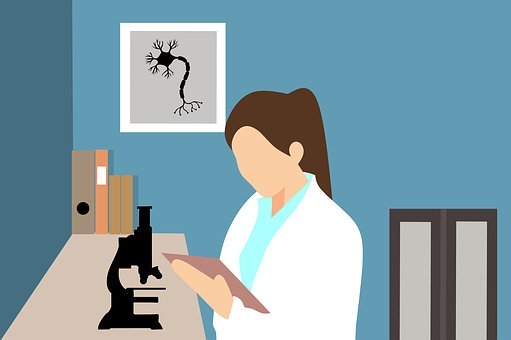Blocked Fallopian Tubes

The fallopian tubes are a pair of slender and curved muscular ducts and the place where the egg combines with the sperm and channel for transporting the fertilized eggs. Fallopian tubes play an important role in pregnancy, once blocked, it is difficult for the sperm and egg to combine, and the embryo cannot be successfully implanted.
Endometriosis
Pelvic inflammatory disease (PID)
Uterine fibroid
Ectopic pregnancy
Reversal of tubal ligation
Complications from lower abdominal surgery, such as cesarean section
Congenital tubal dysplasia
Genital tuberculosis (still common in developing countries, especially India)
Every year, more and more women suffer from endometriosis and fibroids. In fact, 13.6 million women in the United States have moderate to severe endometriosis. Pelvic inflammatory disease is usually caused by sexually transmitted diseases such as gonorrhea, chlamydia, and surgical infection, which causes about 100000 female infertility cases every year.
All of these causes will lead to the adhesion and scar tissue inside the fallopian tube, which will lead to the obstruction of the fallopian tube. The fallopian tube can also be attached to other organs in the body, such as bladder, ovary, uterus, intestines, etc. The injured fallopian tube will distort, and the wall of the fallopian tube may also stick, resulting in complete blocked fallopian tubes.

Irregular menstruation
Abdominal discomfort
dysmenorrhea
Others: such as abnormal vaginal discharge, painful sex, gastrointestinal disorders, chronic fatigue, can not afford protracted exertion, mental symptoms, and depression.
In fact, there is no external feature that can determine whether the fallopian tube is blocked or not. If you've ever had PID, your fallopian tubes are 15 to 50 percent more likely to be blocked. The main sign of blockage is a failure to conceive. Fortunately, there are diagnostic tests available to check for blocked fallopian tubes.
Salpingography
Currently, it is a widely used method in the clinic. It can make a correct diagnosis of fallopian tube obstruction, with an accuracy of more than 99%, and has a certain therapeutic effect. It is the most commonly used inspection method to know whether the fallopian tube is blocked, the severity, and the specific location of the blockage.
Salpingoscopy
It is a method of imaging the intraluminal structure of the fallopian tube, during which recanalization of the fallopian tube is feasible.

Laparoscopic examination
The laparoscopic technique is a minimally invasive operation, the tissue and organs in the pelvis and abdominal cavity can be seen clearly, and doctors can make a rapid and clear diagnosis. Necessary surgical treatment can also be carried out under the laparoscope, which is the gold standard for the diagnosis of blocked fallopian tubes.
Ultrasound examination
It is an auxiliary examination of blocked fallopian tubes. For example, if there is abnormal fluid or ovarian cyst and other reasons causing blocked fallopian tubes, there will be thickening of the liquid dark area on both sides of the uterus.
Hydrotubation
Doctors will inject 20 ml of normal saline and antibiotic solution through the tube, and the fluid will flow through the tubal along the uterine cavity to the pelvic cavity. If the fluid can be smoothly pushed into the pelvic cavity, it indicates that the fallopian tube is open; if the resistance is great during the injection process, it indicates that the fallopian tube is blocked, and there are signs of blockage.
This treatment option can play a very good role in the treatment of blocked fallopian tubes at the early stage. It is mainly to take some superficial physical therapy means to improve the local blood circulation of patients until the rehabilitation effect is achieved. However, it is not recommended to use this treatment method for patients with a serious conditions.
Conventional surgical treatment
Salpingostomy, adhesion separation, salpingostomy, hysterosalpingosalpinostomy, salpingostomy, salpingoplasty, salpingo-ovariolysis were performed. The incision of conventional operation is large and the recovery is slow.
Salpingostomy
This treatment is still used in most medical institutions, but the curative effect is poor and the false positive rate is high.
Traditional Chinese medicine treatment
At present, it is found that PID is the most common cause of blocked fallopian tubes. Traditional Chinese medicine treatments such as herbal medicine Fuyan Pill can promote blood circulation and remove blood stasis and increase and decrease the dosage according to the condition of patients.
Modern pharmacology research shows that traditional Chinese medicine with the effects of promoting blood circulation and removing stasis has the powerful function of improving hemodynamics, hemorheology, and microcirculation. The ingredients of Scutellaria, gardenia, Houttuynia cordata in the formula of Fuyan Pill can remove the bacteria, mould, trichomonad, mycoplasma, chlamydia, and other pathogens detected by culture; effectively eliminate the inflammation and open the blocked fallopian tubes thoroughly.
At the same time, it can also be combined with traditional Chinese medicine external hot compress or enema, and moxibustion, which can reduce the excitability of inflammatory tissue, expand blood vessels of the local tissue, enhance the circulation of blood lymph, improve nutrition and metabolism, turn the pH value of inflammation to alkaline, and play an anti-inflammatory role.

Adjuvant therapy
Patients can also try the diet, exercise, and other auxiliary treatment methods at the same time, in which exercise can promote blood circulation and accelerate metabolism, accelerate the absorption of inflammation, adhesion tissue decomposition. Some results may be obtained for mild conditions. However, in fact, it may have no obvious therapeutic effect on the serious cases.
Prevention
Prevention of vaginal infection;
Be careful about induced abortion;
Timely medical treatment;
Pay attention to the hygiene of the reproductive system;
Exercise properly to improve immunity.
Fallopian Tube Blockage: Warning of Sedentary Lifestyle
previous pageNon-Surgical Endometriosis Treatment
next page- Herbal Treatment for Adenomyosis with Large Uterine Enlargement and Heavy Bleeding
- Effective Chinese Herbal Remedies for Adenomyosis Pain: End Your Period Discomfort
- Endometriosis and Debilitating Bowel & Bladder Pain: Diagnosis, Treatments, and Hope for Relief
- Severe Endometriosis Treatment: Chronic Pelvic Pain Relief and Infertility Solutions
- Revealed: Why Does Postcoital Bleeding Occur After a Mycoplasma Infection in Women, and How to Deal With It?
Testimonials
- Adenomyosis with Ureaplasma Urealyticum Cured by Fuyan Pill
- Tubal blockage with hydrosalpinx can be cured by TCM shortly
- Fuyan Pill Helps A woman with Adenomyosis Get Pregnant
- A Woman with Hydrosalpinx Is Cured with Fuyan pill
- Pelvic Inflammatory Disease Testimonials
- Irregular Vaginal Bleeding and Endometrial Thickening Cured by Fuyan Pill
- Pruritus Vulvae and Frequent Urination: Mycoplasma Infection Cured after 2 Courses



